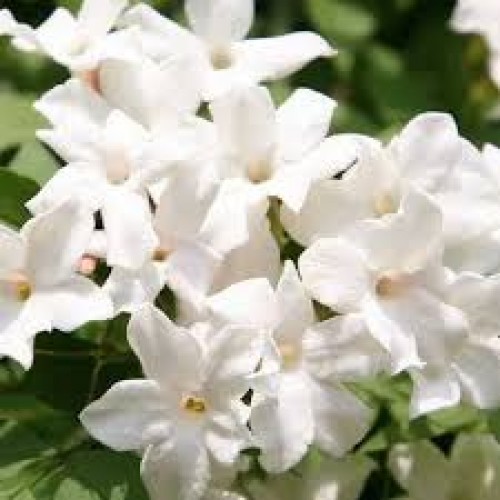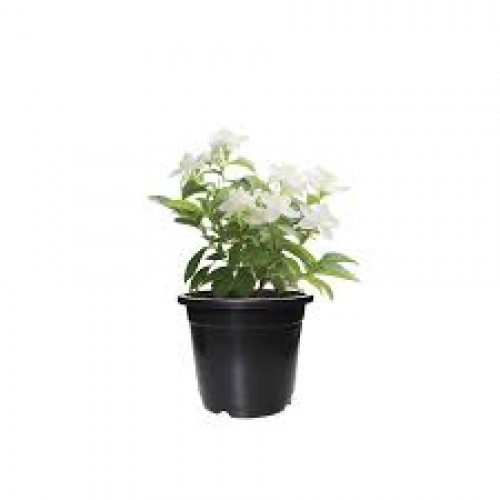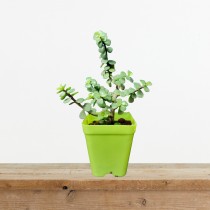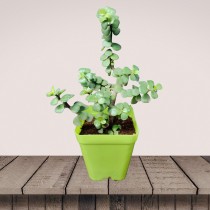60%
off
off
-
Sold
-

-

out
Chameli Plant (Jasminum spp.)
Botanical Features & Nature
- Scientific Name: Jasminum species
- Common Names: Chameli, Jasmine
- Family: Oleaceae
- Origin: Native to tropical and subtropical regions
- Growth Habit: Evergreen or deciduous shrubs and climbers with fragrant flowers
- Leaves: Opposite, pinnate or simple, dark green leaves
- Flowers: White, yellow, or pink, highly fragrant, blooming in clusters
Care & Cultivation
- Sunlight: Prefers full sun to partial shade; at least 6 hours of direct sunlight daily
- Soil: Well-drained, moderately fertile soil
- Watering: Regular watering to keep the soil moist but not waterlogged; reduce in winter
- Temperature: Thrives in warm climates; protect from frost
- Fertilization: Apply balanced fertilizer every 4-6 weeks during the growing season
- Pruning: Prune after flowering to maintain shape and encourage new growth
- Propagation: Propagated through cuttings or layering
Religious and Cultural Significance
- Hinduism: Jasmine flowers are used in prayers and offerings to deities, symbolizing purity and devotion
- Buddhism: Represents meditation, reverence, and devotion
- Islam: Valued for its purity; used in religious ceremonies and believed to promote inner peace
- Other Cultures: In many Asian cultures, jasmine symbolizes love, beauty, and purity; used in weddings and festivals
Medicinal and Environmental Benefits
- Aromatherapy: Jasmine's fragrance is known to reduce stress and promote relaxation
- Medicinal Uses: Used in traditional medicine for its antiseptic, anti-inflammatory, and sedative properties
- Air Purification: Helps purify the air by removing pollutants and improving indoor air quality
- Pollinator Attraction: Attracts bees and butterflies, supporting biodiversity
Advantages of Planting Chameli
- Ornamental Value: Enhances the aesthetic appeal of gardens with its fragrant flowers
- Low Maintenance: Requires minimal care once established
- Spiritual Significance: Offers a serene environment conducive to meditation and spiritual practices
- Versatility: Suitable for hedges, trellises, containers, and indoor cultivation

